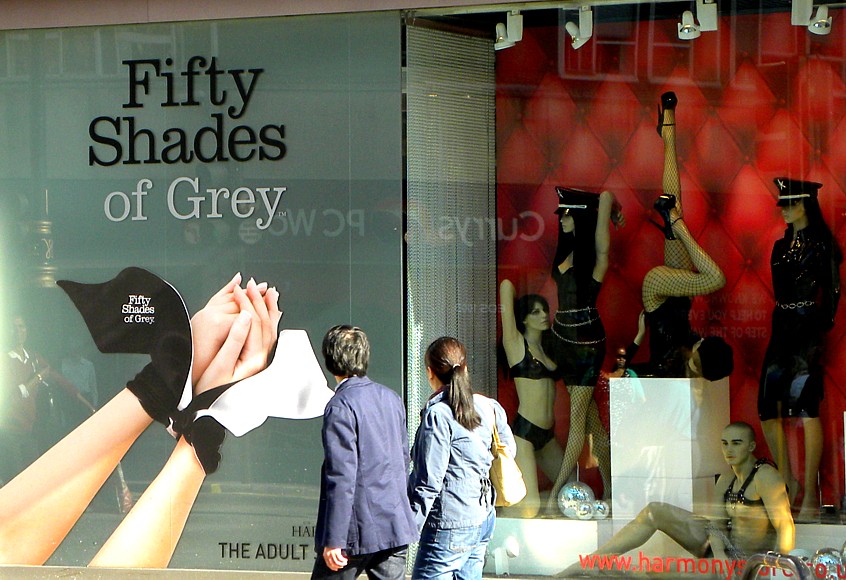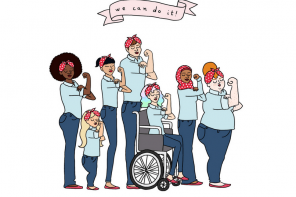The relative quiet from feminists about “50 Shades” is especially puzzling coming on the heels of a major national debate about sexual assault and campus rape. The Valentine’s weekend release of “50 Shades” brings back memories of my days at Tufts University. The school, with the cooperation of the Women’s Center and other feminist groups, hosted an annual Valentine’s Day “Sex Fair,” where students could browse displays of things like genitalia-shaped cookies, sex toys or other pornographic items. Promiscuous sex had somehow become synonymous with feminist expression. As long as it was consensual, anything went.
Nine years later, I find myself walking down the streets of my neighborhood and see the local theatre advertising for “50 Shades” with a poster that simply reads, “Mr. Grey will see you now,” plastered on a picture of a man in a business suit. The naked display of chauvinism in a Washington, D.C. neighborhood filled with young professional women like myself, young women like the film’s heroine — a bookish, aspiring journalist — is stunning.
And yet the lack of full-tilt feminist outrage is somehow unsurprising, because in many respects it is modern feminism that paved the way for a world where “50 Shades” is an acceptable choice for date-night, or acceptable at all. In insisting on tearing down the moral constraints that once surrounded sexuality, feminism’s sexual revolution has actually empowered men to treat women like their pornographic playthings. It has given rise to phenomenon like the “Duke porn star,” a self-professed “feminist” who hasdefended “rough sex,” Beyoncé, who we recently saw gyrating semi-nude onstage at the 2014 VMAs with the word “FEMINIST” behind her in giant, flashy letters, soft-porn Girls creator Lena Dunham, who was photographed eating cake naked on a toilet but then said women rejecting the label “feminist” is her “biggest pet peeve,” and Emily Ratajkowski, the topless star of Robin Thicke’s song Blurred Lines and self-styled “feminist.”
Modern feminism has no effective response to new trends like women at elite universities selling themselves to pay for college to “Sugar Daddies,” no doubt not dissimilar to rich young businessmen like Christian Grey, or to women educated in women’ studies programs auctioning off their virginity. Indeed, how can modern feminists respond to “50 Shades,” when it is a film adapted from a record-breaking, bestselling book written by a woman who grew up in the heat of the sexual revolution and second-wave feminism?
It’s no wonder then, that less than one-fourth of American women today consider themselves “feminist.” That Hollywood got away with releasing a movie in which a young, intelligent woman is coaxed into fashioning herself to the desires of a controlling male figure who says, “I exercise control in all things,” and, “I don’t do romance,” on Valentine’s Day, of all days, is a feminist failure of epic proportions.
Many of us don’t want to see feminism die, but rather would like to resurrect a version in which chivalry and romance are restored. “50 Shades of Grey” is a major setback in that vision. And it’s a major setback to what should be a unified opposition to sexual violence among social activists of all stripes. The cultural tug-of-war over feminism will no doubt continue, but all of us who still cling to the word should be able to agree that the romanticization of torture sex belongs nowhere in American cinema.
Ashley E. McGuire is the founding editor of altfem magazine and a staff writer forAcculturated.com.
This piece was originally published in USA Today.
Photo credit: Todd Mecklem





